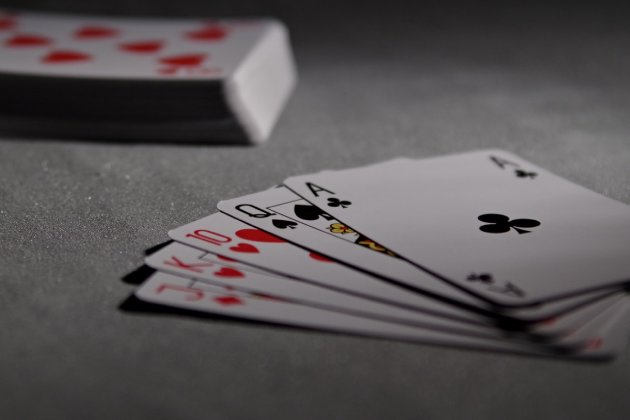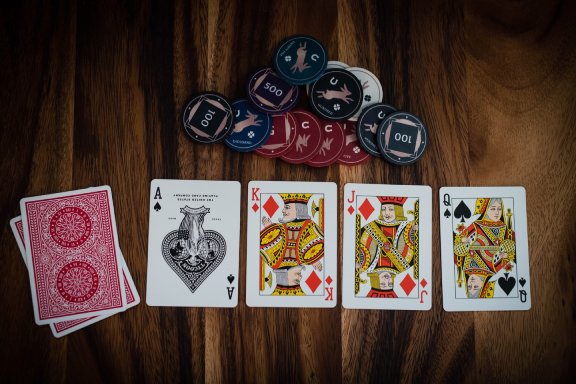Poker is a math game with a lot of psychology and quite a bit of luck involved. To be great at poker, or at least good, you must put in some work in both figuring the math of the game and the psychological patterns other players follow.
If math wasn’t your favorite subject at school, we have great news: you don’t have to have an economics degree to become a solid poker player (although a robust math background won’t hurt for sure). Most of the math used on a day-to-day or even “hand-to-hand” basis is quite simple and easy to figure out and remember.

Basics. How many starting hands are there?
Almost every poker game starts with a 52-card deck (the most popular exception is the short deck which is played with sixes and up, which leaves 36 cards in the deck). That results in 1326 possible combinations of hole cards you can be dealt in Texas Holdem. The expected value of cards in different suits is virtually the same, so being dealt ace-king of clubs equals getting any other suited combo.
Having that in mind, we can distinguish 169 non-equivalent starting hands in poker. There are 13 pocket pairs in total, and you’ll get a pocket pair 1 out of 17 times. The probability of getting the exact pocket pair drops to 1 in a 221, and that’s how often you’re supposed to get those awaited pocket aces.
Substracting pocket pairs from the 169 starting hands, we’ll get the 158 unpaired hands. These are divided into halves: there are 78 suited and 78 unsuited unpaired hands. These translate to 312 distinct combos of suited hands and 936 distinct combos of unsuited hands in raw numbers.
It means that almost 1 out of 4 times (23.53% of times to be exact) you’ll be dealt a suited hand, over 2 out of 3 you’ll get an unsuited hand (70.59%), and in the last 5.88% instances you’ll receive the pocket pair.
As a side note, we’ll add that there are a whopping 270,725 possible starting hands you can get in PLO (Pot Limit Omaha)!

How many combinations of flops are possible, and why is it relevant?
Preflop poker math in No-Limit Holdem is relatively straightforward but the real fun starts when the community cards are dealt.
Given the order of the cards on the flop doesn’t matter, and removing two of your hole cards, there are 19,600 possible flops you can get. That’s a lot, and it’s virtually impossible to study all of them.
However, it’s possible to categorize them in a way that’s way more manageable for human brains. Usually, studies of flop intricacies start with ordering all the possible flops into a few groups and breaking down each group individually.
Why’s that? Because the optimal way to play the AK2 rainbow is pretty similar to the strategy on the AQ3 rainbow. The same logic applies to, let’s say, 9 high and 7 high mono boards.
By breaking down all the 19,600 flops into a few categories, you’ll be able to learn a compact strategy for almost every flop possible. The categorization of flops into manageable chunks became possible thanks to programs called solvers, which, well, solve the optimal way to play on certain board textures.
Thanks to the solvers, we’re now able to play sound strategies with disconnected boards (like A92), paired boards, boards with flush draws, monotone boards, and a few more!
Understanding the correct flop approach is an excellent fundament for leveling up your overall poker game. Flop plays are the most common situations so it’s a great place to start honing your poker skills.

Level up your poker game with Smart Spin
Do you want to learn how to properly play the most common flop textures? We’ve got you covered. Our training materials will teach you the ins and outs of poker mathematics, flop plays, and much more.
By becoming a part of the Smart Spin team , you will join a community of active poker players ready to share their experiences. You’ll learn how to react to any poker situation you encounter at the table and outside. You have 30 days to make up your mind: want to give it a try?
